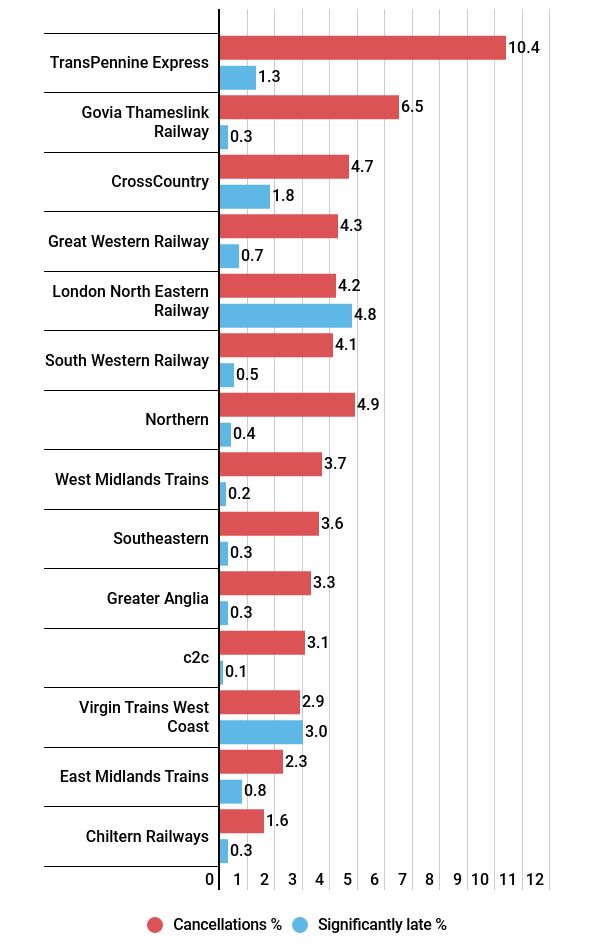Rail passengers lost almost four million hours to ‘significantly delayed’ journeys in 2018 with nearly a quarter of a million trains cancelled, according to Which?
The news comes as the rail industry launched its new timetable, a year after the spring 2018 timetable caused chaos for many passengers.
The consumer group said last year was the worst ever for significant train delays since comparable records began, in 2011.
It said such delays – of at least 29 minutes – affected 8.1 million passenger journeys, with around 80 trains significantly delayed every day.
There were 241,932 cancelled trains in 2018 – an average of 660 a day – also the highest number since comparable records began.
Neena Bhati, Which? head of campaigns, said: ‘Passengers have faced a torrid time on the trains since the beginning of last year where the rail industry has fundamentally failed on punctuality and reliability.
‘People then face a messy and complex compensation system which puts them off claiming when things go wrong.’
Robert Nisbet, regional director of the Rail Delivery Group, the representive body for rail firms and Network Rail, said train companies want to make it ‘simple and easy’ for customers to claim compensation.
‘We know that services on some routes weren’t good enough last year and rail companies are working together to improve punctuality and tackle delays across the country,’ he said.

Train companies have been ordered by cancellation rates in 2018, worst first.
The two train companies with the highest cancellation rates last year were TransPennine Express and Govia Thameslink Railway (GTR), with 89,178 cancellations between them.
Northern – whose passengers suffered significant disruption during last year’s timetable chaos – accounted for 12% of all significantly delayed trains and 14% of all cancellations.
London North Eastern Railway (LNER) and Virgin Trains West Coast had the highest significant delay rates of their planned services, at 5% and 3% respectively.
The RDG said the new summer timetable, which began on Sunday, will mean 1,000 extra services a week. Although, this includes counting the extra daily services throughout the working week five times.
Register now for full access
Register just once to get unrestricted, real-time coverage of the issues and challenges facing UK transport and highways engineers.
Full website content includes the latest news, exclusive commentary from leading industry figures and detailed topical analysis of the highways, transportation, environment and place-shaping sectors.
Use the link below to register your details for full, free access.
Already a registered? Login